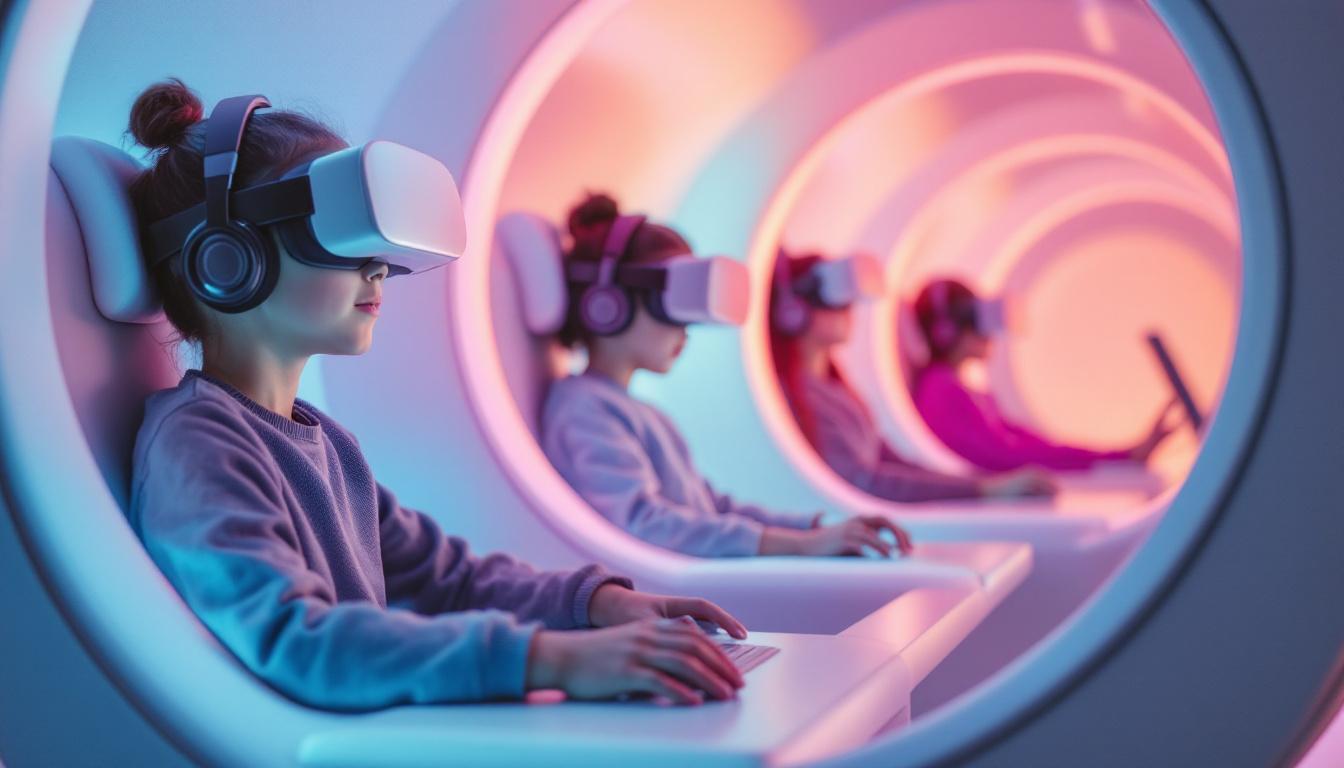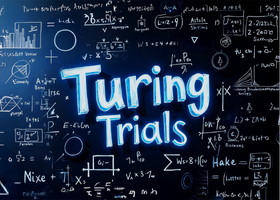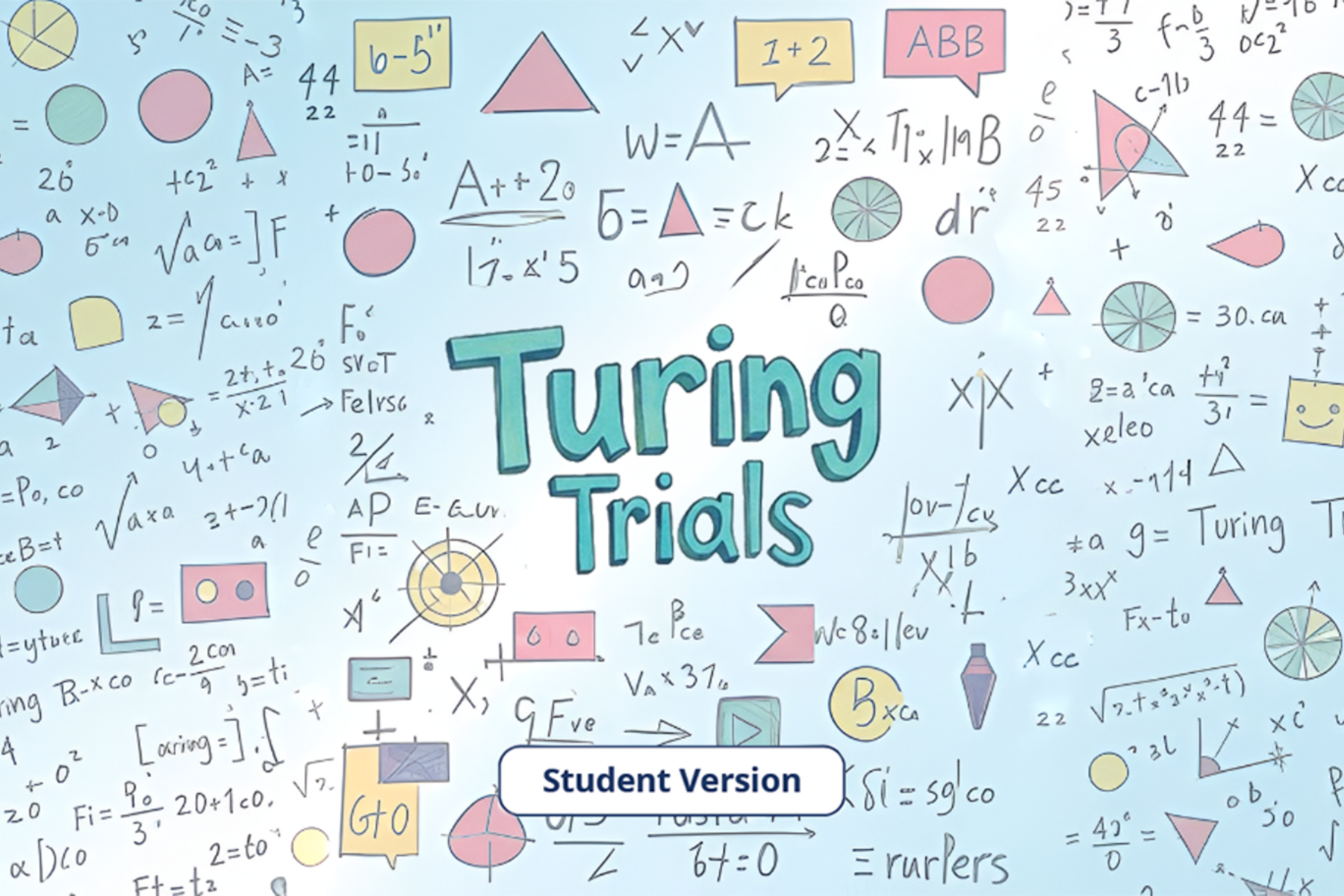AI in Education: 9ine presents ‘Turing Trials Walk-throughs!’
Introducing ‘Turing Trials Walk-throughs’, our weekly guide between now and the end of 2025, which takes a look at each of the Scenarios in Turing...
5 min read
 9ine
:
August 27, 2025
9ine
:
August 27, 2025

Whether your school is just beginning its Artificial Intelligence (AI) journey, or already experimenting with AI tools, building strong AI literacy is essential to unlock the many opportunities of using AI in Education whilst managing the challenges and risks.
A key goal of AI literacy is to empower staff and students to be ‘Humans in the Loop’, making sure that they have the skills they need to effectively use AI Systems, provide oversight of them, to guide or correct their outputs, and to make sure that critical decisions remain under human control.
In this article, we discuss what the concept of ‘Human in the Loop’ means, why it is critical in schools, and how AI literacy can support staff and students to be those humans (in the loop). We will also provide details of our upcoming webinar on this topic, as the start of the new academic year is the perfect time to review the level of AI literacy your school has and what you need to do to increase it.
Human in the Loop (HITL) is the concept (or approach) that humans must be actively involved in all key stages of an AI system’s lifecycle, rather than the AI System working entirely on its own. The life cycle includes the stages of Design, Development and Deployment of an AI system. For schools, most often it will be the Deployment stage where AI systems have been introduced into the school environment (and staff and students are using them) that the importance of HITL comes into play.
In practice, Human in the Loop means that:
With the increasing capabilities of Artificial Intelligence, questions often arise around the role that humans will play in the world going forward, and in particular, what AI means for the role of teachers in the classroom. Through emerging regulations like the EU AI Act and general consensus, it is clear that humans have a very important role to play in AI being used safely, securely and compliantly. AI Systems should be used to support humans, not to replace them.
With the important role that humans play in the oversight, correction and interaction with AI, it is important that schools ensure that staff and students have the skills, knowledge and authorisation that they need to effectively be those humans in the loop.
Different schools are at different stages of maturity with AI. Even within the same school, different staff and students are at different stages of maturity when it comes to AI. So what do schools need to do to empower all staff and students to be Humans in the Loop?
The importance of humans when it comes to the use of AI cannot be overstated. To help realise the opportunities of AI (whilst avoiding the risks and challenges), empowering all staff and students to use AI safely, securely and compliantly is a must. At 9ine we can help you in a number of ways with different solutions to meet your needs wherever your school is on its AI Literacy journey.
Academy LMS: 9ine’s on-demand training and certification platform enables schools to enrol individual staff members or entire groups in comprehensive training courses, modules, and assessments, featuring in-built quizzes for knowledge checks. Our AI Pathway is your school's learning partner for AI ethics and governance. With over 20 differentiated course levels you can enrol all staff in an Introductory course to AI, then for those staff with a greater responsibility, enrol them in Intermediate and Advanced courses. There’s also Specialist courses for AI in Safeguarding, Child Protection and Technology. Schools can also subscribe to learning pathways in Privacy, Cyber, Tech Operations and Risk Management. Alternatively, schools can purchase courses on a per person and a per course basis. We are currently offering free trials for up to three members of a school’s leadership team, so contact us if you would like to take advantage of this, or have any questions on Academy LMS.
Turing Trials: Our free to download workshop-style card game, designed to help schools explore AI in education in an engaging and interactive way. It supports schools in fostering discussions on AI’s impact in education, including on data privacy and child safeguarding. It is perfect for school administrators, educators, and technical staff and can be used in workshops to increase AI literacy across the whole school. It enables colleagues to collaborate, navigate real-life AI scenarios and make strategic decisions which affect students, staff and school operations. Turing Trials is not just great for staff at schools though, as it can also be used with students to have conversations with them about the opportunities and risks of AI, and what their thoughts and feelings are about how it is (and should be) used in the school.
AI and Privacy Academy: 9ine’s certified monthly training programme for risk professionals and education privacy teams. It equips Data Protection Officers (DPOs) or anyone else at your school who are responsible for data protection and privacy in handling data breaches, subject access requests, and international data transfers confidently. The new enrollment intake will commence in November 2025, and cover nine live sessions ending in April 2026. The program offers interactive sessions, group scenarios, and comprehensive resources.
Webinar Alert! In September, we will also be hosting two repeat sessions of our webinar ‘Start Smart: Empower Your School with AI Literacy this Academic Year’. The new academic year is the perfect time to assess the level of AI Literacy your school needs, and put strategies in place to create it. In this webinar we will cover:
The webinars will be hosted on the 4th September 2025 at 08:30am and 16:00pm BST and you register for them here.
9ine equips schools to stay safe, secure and compliant. We give schools access to all the expertise they need to meet their technology, cyber, data privacy, governance, risk & compliance needs - in one simple to use platform. For additional information, please visit www.9ine.com or follow us on LinkedIn @9ine.

Introducing ‘Turing Trials Walk-throughs’, our weekly guide between now and the end of 2025, which takes a look at each of the Scenarios in Turing...

Last year saw the successful launch of 9ine’s Turing Trials AI card game, which we designed for schools as a fun, free and engaging way for them to...
.png)
Welcome to our next installment of the ‘Turing Trials Walk-Throughs’, where between now and the end of the year, we will take you through each of the...